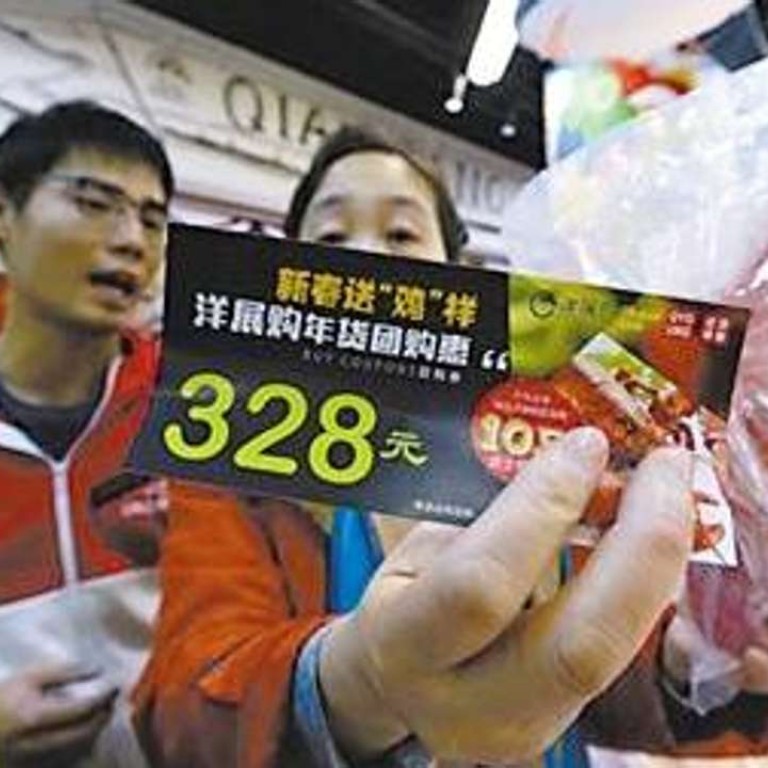
Lost in translation: The difference between ‘four’ and ‘ten’ is more than 10,000 yuan for Chinese supermarket manager
Manager from Guangdong confuses pronunciation of the two numbers in Chongqing dialect, giving shoppers a bargain of a lifetime
A failure to tell the difference between the pronunciation of “four” and “ten” in the Chongqing dialect has cost a supermarket owner more than 10,000 yuan (HK$11,200), mainland media reports.
The costly misunderstanding occurred when Tan Jiayue, the owner of a supermarket in the huge southwest Chinese metropolis, called a printing house to make coupons for imported lobsters that were going on sale, the Chongqing Commercial Daily reported.
Tan, from coastal Guangdong province, said he wanted to sell four lobsters for 328 yuan, and the owner of the printery thought he meant 10.
“I didn’t know how much a lobster should cost. His Mandarin had a heavy accent. I carefully confirmed the quantity with him and asked if he meant 10, and he said ‘yes’,” the printery owner told the newspaper.
Tan, in turn, thought his counterpart said “four” instead of “ten”.
In the Chongqing dialect, “four” and “ten” are pronounced almost the same except their slightly differed tones – a delicate difference that many outsiders find difficult to distinguish.

The coupons were printed with “328 yuan for 10 lobsters” and were sold at the supermarket. The mistake was not found out because there were thousands of coupons for all kinds of products arriving on the same day, and the supermarket only ran a spot check on them, the report said.
Tan only discovered the mistake while he was doing the rounds at the supermarket the next day, by while time nearly 30 coupons had been sold.
The lobsters, imported from Boston in the United States, usually sell for 98 yuan each in the supermarket, and selling four for 328 yuan already left him very little profit, Tan said.
Selling ten for 328 had cost him more than 10,000 yuan, he added.
On social media, many users sympathised with Tan’s misfortune, saying they also had problems telling the difference between the two numbers in the Chongqing dialect.
“I’m from Hebei and [after living in Chongqing for a long time] I still cannot differentiate ‘four’ and ‘ten’ as local Chongqing people say them. So whenever the two numbers crop up, I just use my fingers to sign what I mean,” one user said.

